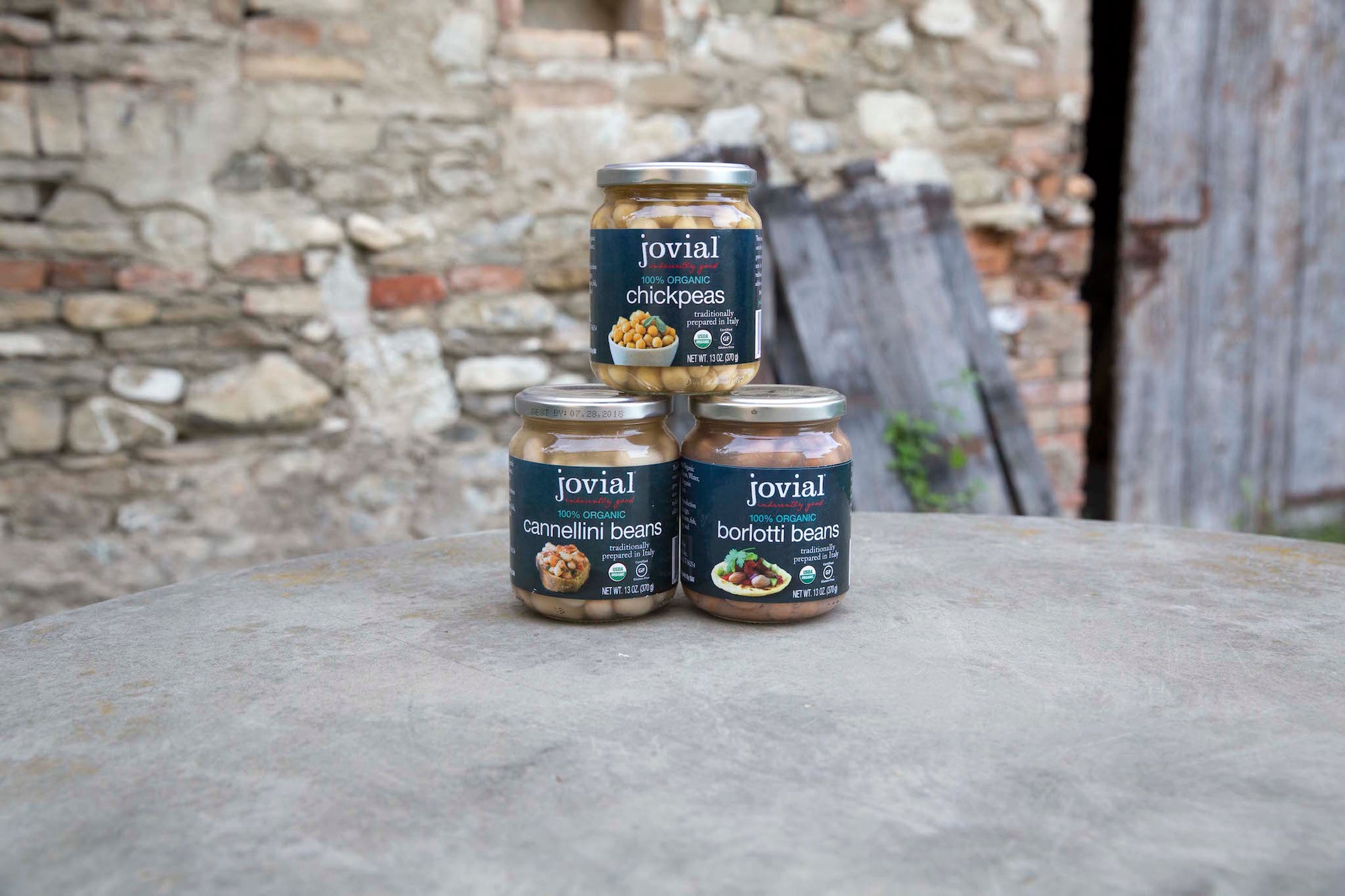
· By Jovial Foods
BPA-Free Beans in Glass—Tour Our Facility
Not so long ago, Bisphenol-A (BPA) was frequently in the news. BPA is a chemical used in the production of hard plastics and it is also used in the plastic linings of metal cans to prevent the contact between foods and tin. The problem is studies have shown that this chemical can mimic estrogen and disrupt the body's hormones, causing health concerns related to fertility and reproductive organs. To avoid exposure, the FDA warns against heating foods in containers containing bisphenol-A because that's how traces of the chemical can be transferred to the food. What's concerning is the fact that when beans are packed in metal cans, they are placed inside the can and heated to a minimum of 240ºF for 20 minutes for sterilization.


Today, manufacturers have turned to BPA-free linings, but some reports have shown that Bisphenol-S, which is used instead of BPA, can also be harmful to our health. When manufacturers say their cans are enamel-lined, this means that large sheets of tin are sprayed with polyester paints before the metal is shaped. Enamel-lined might seem positive, but it is certainly not referring to something like enamel-coated French cookware. We believe the purest packaging is glass, and that's what we focus on. We've made it a priority to make whole peeled, crushed, and diced tomatoes, packed in glass jars, part of the Jovial product line-up. Jovial organic cannellini, borlotti and chickpeas were introduced to the market this year, and are steadily making their way to stores across the country. Now, we're happy to show you how our new beans are made.

We love to work in Italy because our manufacturers are large enough to supply our market, but small enough to still do things the right way, even if it means the involvement of many hands. Our beans are grown on small, organic farms in the Piemonte region of Italy. They are sorted by hand before being soaked for 24 hours. Soaking beans reduces the enzyme-inhibitors that can make them hard to digest.



Once the beans have soaked, they are rinsed with fresh water and cooked. The jars are filled with the cooked beans, water and a bit of salt is added, then the jars are sealed and sterilized. The cooking water for borlotti, an heirloom variety of cranberry bean, tends to become starchy, so we add a touch of organic lemon juice to clarify the water. The beans must be sterilized at the temperatures and times set by the FDA, and this determines how soft the cooked beans are inside the jar.


Once the beans are cooled and the jars are wiped down, the labels are applied and the product is packed up for shipping.


We are really pleased with the quality of these new products. In the 20 years that we have been working in food manufacturing, we have seen the number of people working in factories decrease tremendously, replaced by computers and machinery. We might be old-fashioned, but we believe that technology cannot fully replace the eyes and hands of real people, especially in the production of food. A recipe might be programmed into a computer, but ingredients change and we feel more comfortable utilizing a hands-on approach. We hope you feel the difference in every jar of jovial beans.
